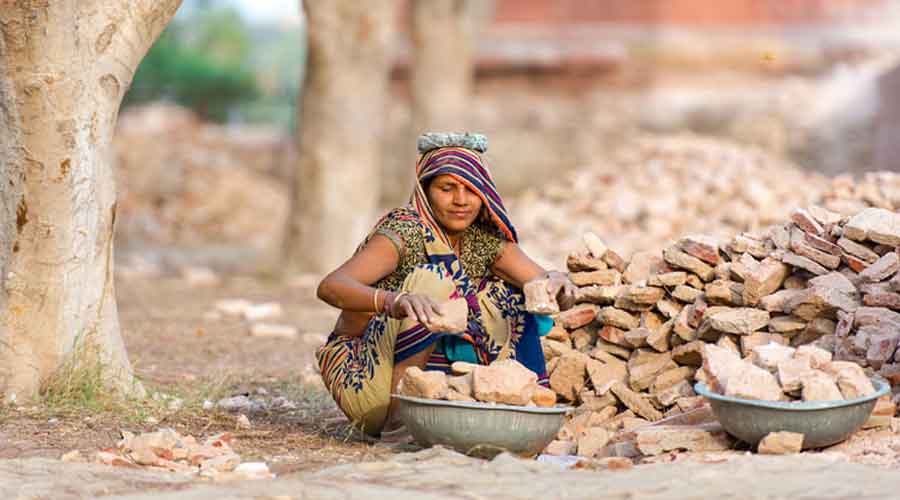Budget 2022-23 has allocated Rs 73,000 crore for the rural job scheme, the same as last year, with analysts saying this effectively marks a decline when one considers the high demand for work under the programme and inflation.
While the 2021-22 budget proposals had allocated Rs 73,000 crore for the scheme, implemented under the Mahatma Gandhi National Rural Employment Guarantee Act (MGNREGA), the sum had been increased to Rs 98,000 crore — as shown in the revised budget — because of the increased work demand. The spending under the scheme was Rs 1.11 lakh crore in 2020-21.
The MGNREGA is a demand-driven scheme and the government is legally bound to provide the resources to fulfil the demand for work from job card holders.
According to the Economic Survey, employment under the scheme had peaked during the nationwide lockdown in 2020, with the demand for work stabilising after the second wave of the pandemic.
But the aggregate employment under the programme was still higher than pre-pandemic levels, it added.
Debamalya Nandi, a researcher studying the MGNREGA work trend, said the allocation was “very disappointing”.
Nandi said the central government was yet to clear pending wages of Rs 1,464 crore and pending material costs of Rs 10,900 crore, the arrears totalling Rs 12,364. “This is going to eat up part of next year’s budget. So, effectively only about Rs 60,700 crore is available for next year,” Nandi added.
The scheme provides for up to 100 days’ unskilled work for every rural household in a year.
But if the government provides employment to all the 9.94 crore active job-card-holding families, Nandi said, it would only be able to provide some 20 days of work per family, going by the average per-person-per-day cost of Rs 298.
However, the wage rates would also increase and therefore the scope of employment would reduce further, he said.
The NREGA Sangharsh Morcha, a civil society organisation, had demanded a budget allocation of Rs 3.62 lakh crore for the programme to ensure enough work and timely payment.










